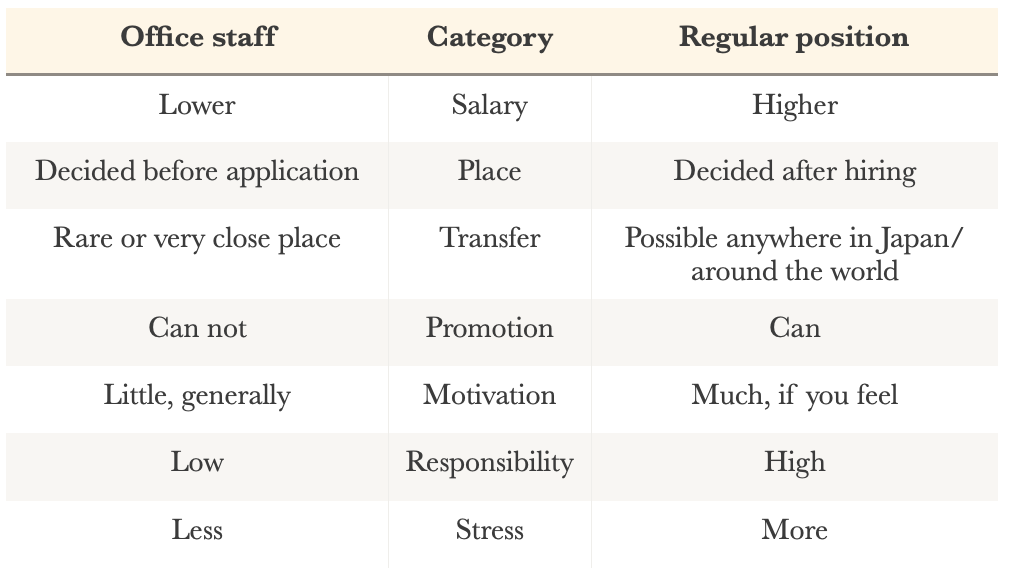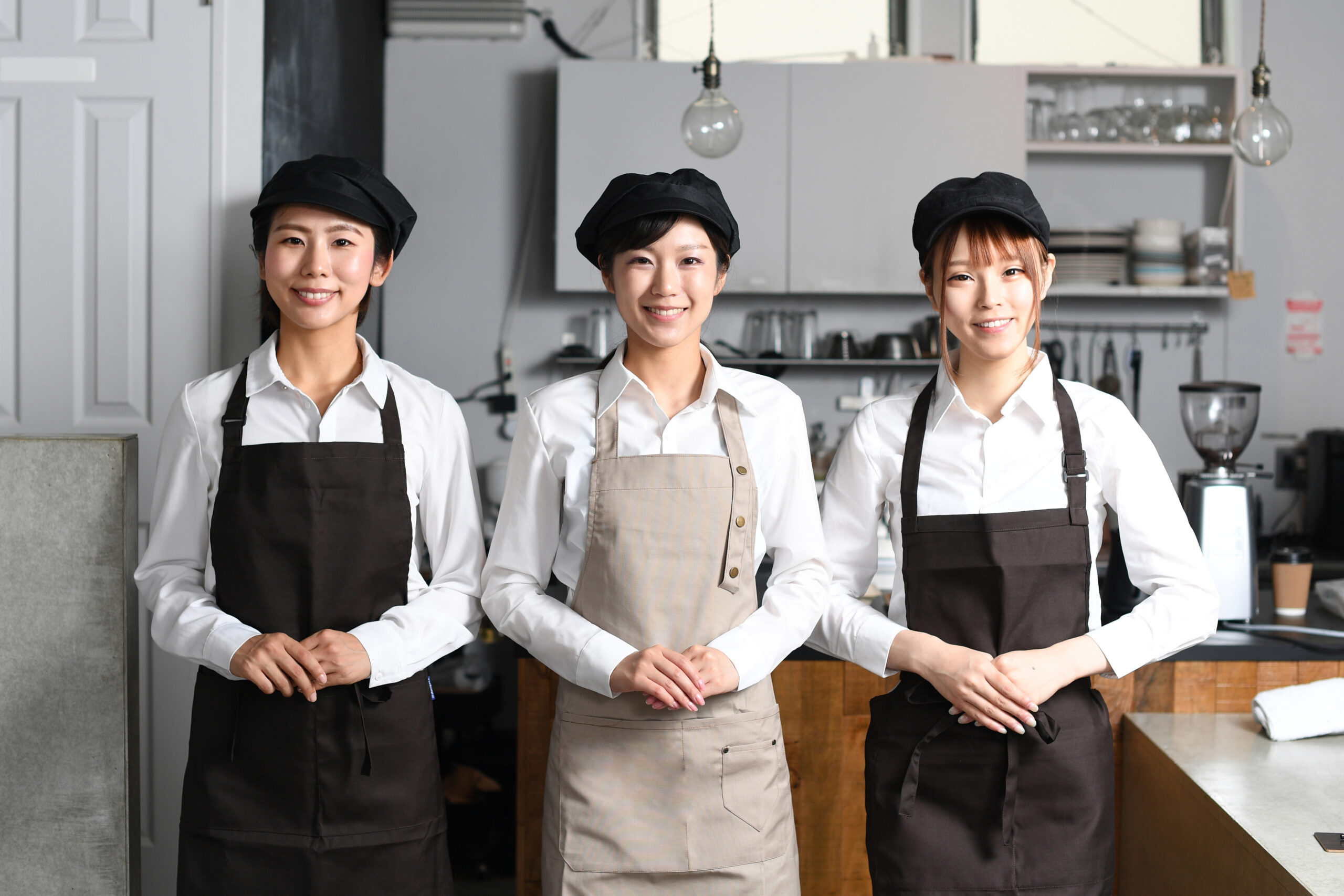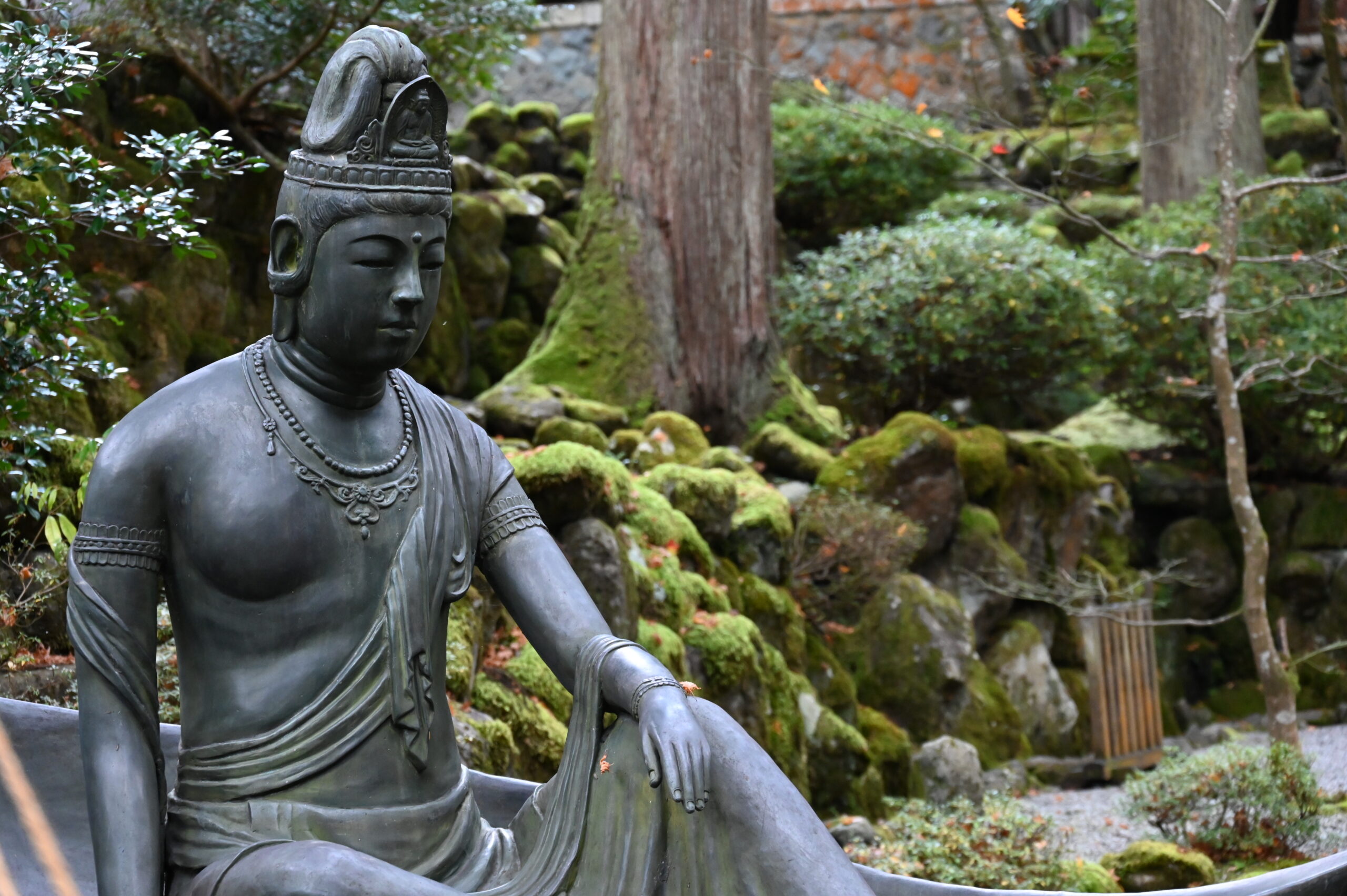Hi everyone! It’s Pentleman (@pentleman_blog) here!
 Sloth-san
Sloth-san
But those works weren’t evaluated.
People around you may think you’re jut easy to ask. Don’t be a just handyman.
 Dolphin-san
Dolphin-san
People who are easy to ask are really convenient for their boss.
However, your time isn’t free actually.
So, we should reconsider our true responsibility for our own future.
b) waste your time to do miscellaneous task
c) want to know how the “volunteer working style” goes at the end.
Don’t waste your time and never be a handyman.
Work places in Japan are full of “volunteer work”.
Let’s learn case study!
Office staff vs Regular position

Have you ever heard of the Japanese recruitment system?
There are two types of recruitment: Office staff and regular position, both are permanent.
Here are the differences between these two positions generally in Japan.

Reference: ジョブトラ
Both of them have pros and cons.
Most university students are aiming for the regular position because of better benefits that will highly affect their lifestyle.
Actually, lifetime employment is still common in Japan, although it is gradually changing.
Can you take this task?: That would be a disaster

What tasks are expected for people on regular position?
Maybe, that is spontaneity.
In Japanese culture, volunteer works are regarded as a “nice” feature.
However, in my experience, that’s not absolutely “nice”.
If a Japanese worker is told by his boss:
 Boss
Boss
That would be a disaster.
Every young worker is expected to do an extra miscellaneous business.
American people tend to say:
 American guy
American guy
The American working style is completely divided into different specialties.
Workers are never expected to do beyond their job description.
However, saying “NO” is often difficult for Japanese.
So “someone” has to take the worthless and time waisting tasks.
Case study: A volunteer work that won’t be evaluated

What only matters is your main task.
Tasks beyond your job specification won’t be evaluated at the end of the year.
It won’t help your year-end performance sheet.
Here, I would like to introduce my unfortunate story about “internal volunteer work.”
I got the e-mail from a manager in another group.
Global companies have internship programs for university/college students.
The Department of Human Resources would hold an event to introduce our industry.
While the e-mail came suddenly, I read between the lines because a senior manager was in CC ( Carbon Copy).
But the next email was even terrible.
 Pentleman
Pentleman
In short, the time I needed to spend was more than two weeks in total as a volunteer.
Holding meetings, preparing the PPT for 20 mins, editing several times, practicing in the big auditorium, and explaining in front of 100 students.
That won’t finish in an hour.
I thought I was just a staff at the beginning but I became the event planner for that internship program.
Of course, the volunteer work wasn’t evaluated and didn’t help my year-end sheet.
I even lost one-24th of my working time in that year.
In addition, the team leader complained during that time.
 My team leader
My team leader
Volunteers will be like restaurants that offer everything

Unfortunately, the volunteer workers won’t pay off.
Such pile of small tasks don’t affect their evaluation.
Finally, my boss left the message, “You should work more efficiently”.
BTW, which restaurant do you want to go?
a) Restaurant for everything, like Sushi, Ramen, Yakiniku, and Curry.
b) Japanese Sushi specialty restaurant
Actually, the latter is more popular and they have higher profit.
When we choose a restaurant, we expect good quality from the specialty restaurants.
On the other hand, restaurants which offer everything don’t have special features, which most likely never attract people.
The major premise of Japanese working society used to be a lifetime employment.
In this scenario, getting on the good side of the boss was a survival strategy.
If you can survive, the rest of your time after 60 will be secured with enough pension.
But lifetime employment and good pension will never be enough for retiring at 60 and it’ll be gone too soon.
The company would say:
“Good work during in prison! Good luck for your quiet retirement!”
After 10 years from now, the lifetime employment will be over.
People who have worked as volunteers in companies must be restaurants which offer everything.s
No company wants to hire a handyman in the world after the rise of artificial intelligence (AI).
I heard from my sly colleague:
This can block any meaningless tasks from our boss like a fire wall.
I want to keep the task in hand for a while.
 sly colleague
sly colleague
That comment revealed my long-standing question.
That’s why he looked like he didn’t take any miscellaneous tasks.
Now, we realize the necessity to establish own specialty.
Not to be just a handyman.
 Pentleman
Pentleman
Pentleman’s Photo Travel

@ Daihonzan Eiheiji temple, Fukui in November



